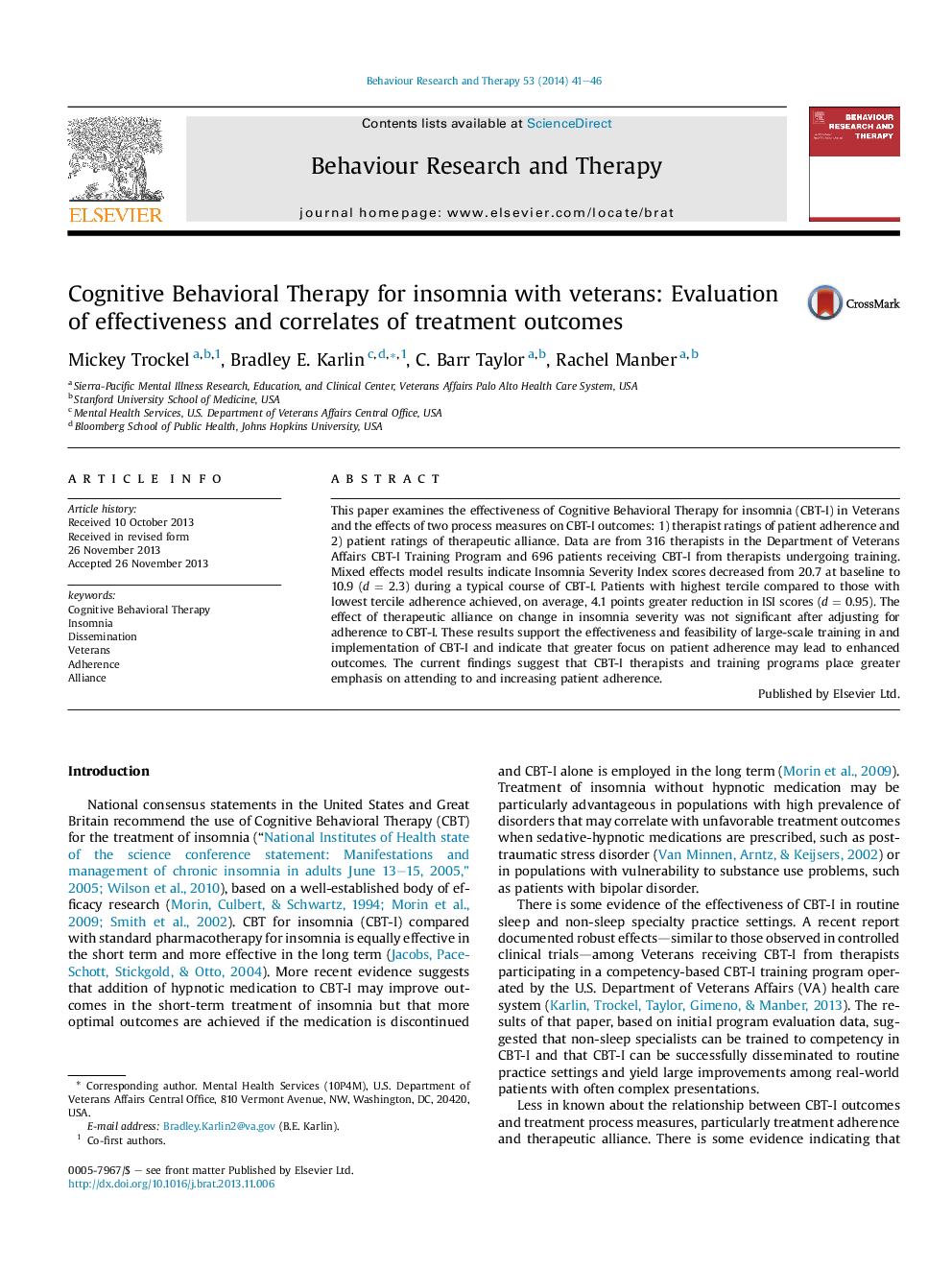| Article ID | Journal | Published Year | Pages | File Type |
|---|---|---|---|---|
| 7262735 | Behaviour Research and Therapy | 2014 | 6 Pages |
Abstract
This paper examines the effectiveness of Cognitive Behavioral Therapy for insomnia (CBT-I) in Veterans and the effects of two process measures on CBT-I outcomes: 1) therapist ratings of patient adherence and 2) patient ratings of therapeutic alliance. Data are from 316 therapists in the Department of Veterans Affairs CBT-I Training Program and 696 patients receiving CBT-I from therapists undergoing training. Mixed effects model results indicate Insomnia Severity Index scores decreased from 20.7 at baseline to 10.9 (d = 2.3) during a typical course of CBT-I. Patients with highest tercile compared to those with lowest tercile adherence achieved, on average, 4.1 points greater reduction in ISI scores (d = 0.95). The effect of therapeutic alliance on change in insomnia severity was not significant after adjusting for adherence to CBT-I. These results support the effectiveness and feasibility of large-scale training in and implementation of CBT-I and indicate that greater focus on patient adherence may lead to enhanced outcomes. The current findings suggest that CBT-I therapists and training programs place greater emphasis on attending to and increasing patient adherence.
Related Topics
Health Sciences
Medicine and Dentistry
Psychiatry and Mental Health
Authors
Mickey Trockel, Bradley E. Karlin, C. Barr Taylor, Rachel Manber,
